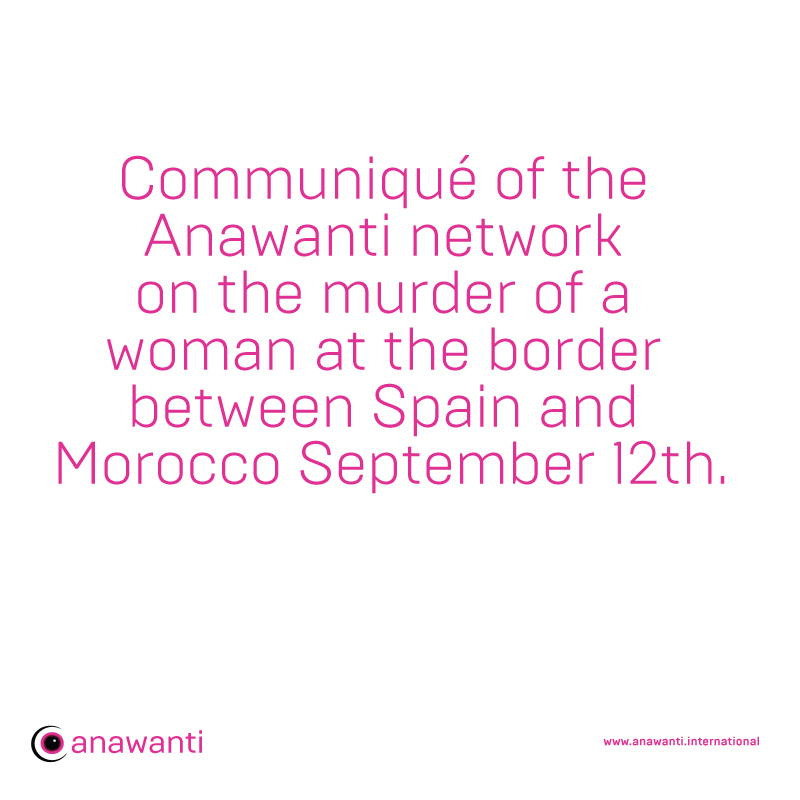Communiqué of the Anawanti network on the murder of a woman at the border between Spain and Morocco
On Monday 12 September, a woman from sub-Saharan Africa was shot dead at the border between Spain and Morocco during a migration control operation. The Moroccan authorities opened fire on her and her companions as they tried to board a patera on the coast between Akfhennir and Tarfaya, the Canary Islands route.
None of the news published so far includes the name of the murdered woman, but we know that she was not the only victim. There were 35 other people on board, 29 sub-Saharan Africans and six Moroccans. Two of the passengers were babies and fifteen women. The operation resulted in more serious injuries, at least three people whose prognosis is unknown, and two young people were run over by a car while trying to get to a safety place from the gunfire.
Lets break the visible and invisible borders!
The Anawanti Network condemns this murder, which is the result of migration control policies and the externalisation of borders of the Spanish State with Morocco.
The patriarchal mandate stipulates that women should not leave the places assigned to us, spaces that we nevertheless sustain. For this reason, women encounter resistance and are singled out when they move. This violence is greater when this displacement intersects with other borders such as the north-south (rich countries vs. plundered countries), or those derived from racialisation and colonial cultural models that make us assign different values to human lives depending on their origin.
From the Anawanti Network we call on feminist movements to strongly denounce the violence that these borders pose to other women and people as places designed for control, domination and preservation of sovereignty.
ANAWANTI is an international network of feminist organisations for a life free of violence made up of organisations and women from El Salvador, Honduras, Guatemala, Morocco, Palestine and Catalonia. We are articulated from the recognition of diverse feminisms and from an intersectional perspective that allows us to support each other in the face of the multiple oppressions that affect us, including colonialism and racism.
SUDS – Spain
SURT Foundation – Spain
Centro de Derechos de Mujeres (CDM) – Honduras
Organización Salvadoreña de Mujeres por la Paz (ORMUSA) – El Salvador
Actoras de Cambio – Guatemala
Association Marocaine pour les Droits des Femmes (AMDF) – Morocco
Mains Solidaires – Morocco
Union of Palestinian Women Commitees (UPWC) – Palestine


